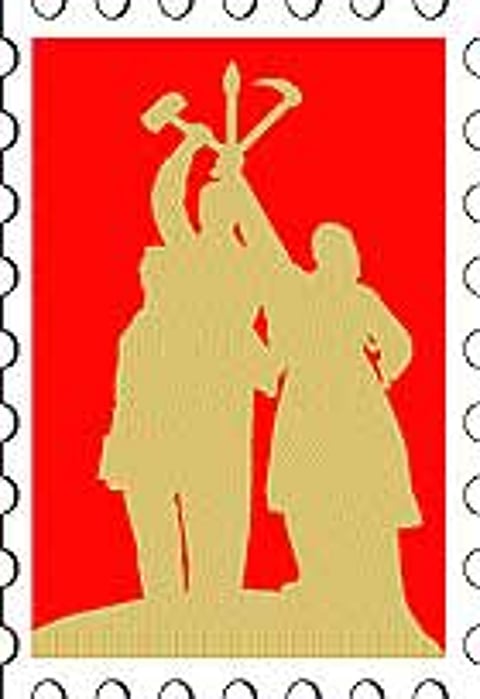The Unreal World
Pyongyang Diary
Each night I sent an e-mail to my wife that began with the words. “As I type, I have two ladies standing at my shoulder reading every word I write, which is very rude.” I would then pause and look up at them...

The clocks at the airport arrival terminal tell you Pyongyang is one hour ahead of Beijing. Everything you see from then on tells you it’s thirty years behind. I had stepped on to the aging Soviet-era plane to the sound of suitably stirring patriotic music. I was ushered through the first class section with its fake marble laminate and little embroidered cushions by pretty air hostesses in bright red uniforms, white lace gloves and little Kim Jong-il badges. The men all looked like they’d been dressed from the Bad Guy section of Sholay’s wardrobe department. My fellow passengers moved around so much during the flight that when we landed I was still standing in the aisle. Two hours, two power cuts, and two government minders later, me, my luggage and my new friends were heading into the capital.
Pyongyang is the only major city I’ve been to where you can clearly see the stars at night because there is so little light coming from anywhere else. Bus queues are often more than a hundred-people long; the colleges and government buildings I visited were not heated even in the middle of winter and my repeated requests to visit an ordinary food market were simply ignored. And life outside Pyongyang is by every account much, much worse. That’s where government officials are sent to live if they do something wrong.
Getting a phone line out was next to impossible so each night I sent an e-mail to my wife Bhavna that began with the words. “As I type, I have two ladies standing at my shoulder reading every word I write, which is very rude.” I would then pause and look up at them. They would smile back sweetly and stay exactly where they were. Like my ever-present minders, they were nice enough people, who in the real world would be teachers or bank clerks. But this wasn’t the real world, it was North Korea. So their job was to stop me doing my job.
Not Kipling’s Kim
Equally nice were the many English language students I came to meet and for which I was granted my journalist visa. Every morning I met them, they were all still wrapped up in their winter coats inside their freezing-cold classrooms. They were the children of the party faithful and one day they will be running the country. But even they couldn’t entirely escape the reality of everyday life in North Korea. They answered my questions with enthusiasm and excitement, and told me they wanted to be businessmen or diplomats or teachers. None felt the need to pepper their responses with political rhetoric. They talked about their aspirations as individuals. This was in marked contrast to anyone over forty I interviewed. They couldn’t wait to break into a monologue on the virtues of the “Dear or Great” leaders, Kim Jong-il and his late father Kim Il-sung.
The Latest Chaucer
In a sign that it may one day open up to the western world, North Korea has gradually shifted a lot of its language training away from Chinese and Russian towards English. I asked one student what he hoped to do with his language skills. “I hope to achieve speaking English so that I can go abroad and do some business because I want to be a businessman,” he told me. Another said he was going to be a diplomat. They seemed, at the moment anyway, quite willing to engage with the outside world. I asked one student who his favourite English authors were. He hesitated and then said, “Shakespeare and Dickens”. I asked him if he had read anyone more recent. There was a long embarrassed pause and then: “Jane Eyre or Hamlet,” he replied. The government wasn’t only keeping a close eye on their reading list. There were other strangers in their classroom that day. Because of me, they had several government officials and both my minders listening to their every word, one of whom quickly suggested that I shouldn’t ask anymore questions about books.
Tomorrow’s People
And yet all the youngsters I met seemed genuinely confused as to why their country was seen as a pariah state. And they genuinely seemed to have no idea just how much of a mess their country was in. Pyongyang is supposed to be a showcase for following the doctrines of the Kim dynasty. And if that’s the best they can do, then the rest of the country must be in a terrible state. But if North Korea has a future, then the students I met are it. It may take a generation to turn this country around. But there is a glimmer of hope if they can open their minds to the world outside, and their eyes to reality of the present. Then perhaps they’ll choose a different path from their elders and avoid blighting the country with the same disastrous mistakes.
(Paul Danahar is the BBC’s Middle East bureau chief.)
Tags